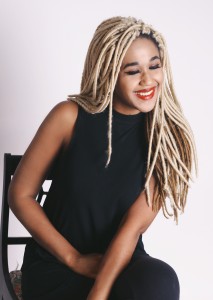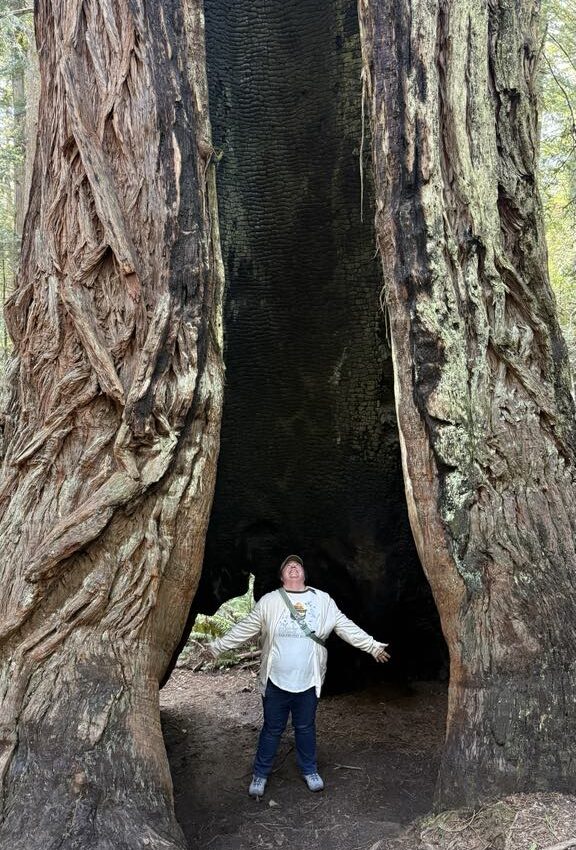The pressure that society has placed on women is monumental. From careers, to relationships to social lives: women are made subject to multiple informal life guidelines. At the top of the to-do list, is to develop an aversion to aging (a panic that must start before 30).
It is implied that women are not supposed to get older and if they dare—they are eligible for public sanction. As it is told, anyone clocking in above 25 years is catapulting dangerously close to “the end,” “the edge,” “the abyss,” or some similarly frightening fate. The unfair idea of age equaling invalidation is instilled and dispelled by the media. These rules negatively affect viewpoints on an individual and societal level. The criticisms of aging circulate around the workplace, classrooms, homes, and social circles of girls and women everywhere.
Lately, I became especially aware of this phenomenon. I found myself questioning why we are caught up in the idea that only youth is valuable. Also, why is “youth” itself measured according to a strict scale that cannot be successfully negotiated? And why then, are the rigors of this unfair judgment placed disproportionately onto the shoulders of women?
The root is a negative, misogynistic discourse about the ideal “female” role. Much of which revolves around Woman as Pleasure rather than Woman as Person. The objectification, obsession, and amusement with women’s “beauty” are compounded by the expectation that beauty is uniform and standardizable. The memo becomes clear in a patriarchal society: women must be aesthetically pleasing, and the first step in that direction is to be young. Youth is packaged and sold as a commodity, and as something essential. If you are considered to be lacking or holding onto the vestiges of youth, this issue can be maintained, revised, or even acquired. Corporations profit tremendously from targeting the aging woman. Triple digit designer t-shirts, serums, and surgeries are advertised and recommended to reinforce the idea that aging is indeed frowned upon, but also very “fixable.” (Convenient?)
Whichever discourse is at work that has the world believing that 30 is “dirty” and any woman over 50 might as well let it go, is one rooted in fear. With aging comes the expectation the one will lose sense of enthusiasm, passion, interest in sex (beyond vanilla petting), relationships, culture, and life itself. The fear of aging in women is a fear of resignation and loss of power. In this context, sex is Power and Power is sex. As the early 20s fade, panic can set in. Women and men alike are taught that a woman’s worth is equated to sexual desirability (which is governed by the male). Women who govern their own perception of themselves and their desires, despite age, are considered an affront and all-the-while thought to be revolutionary.
Sexuality is tied to fertility, productivity, and “usefulness.” These qualities are highly valuable in a society that rewards assimilation, labor, and contribution. In short, there is fear that the older woman will no longer be able to offer a womb and offspring. Without this voluntary giving, she is regarded as lesser than she was in her fertile years. It is not taken into consideration that her purpose is not one of breeding, but of enjoying her own life, or influencing those of others. Not only is the notion that fertility equals social relevance dangerous, but it is limiting and contributes to the erasure of women who either cannot have children or do not want them.
The fear of decrepitude or resignation is not just a problem for those 30 and over. Girls in their teens sometimes feel rushed to have children before it’s “too late,” as if the quarter decade mark indicates doom. Instead of planning their next business move or event, young girls are preoccupied with finding a boyfriend or waiting for an eligible husband. If this goal is completed on course, there seems to be a sense of pride that stems from being validated in the world of matrimony and motherhood. Girls are relieved not to be the “old maid” or “cat lady” of their group. Those who do not prioritize childbearing at an early age are subjected to constant pressure to do it before any age-related physical changes can manifest. Because as it is taught, those changes are feared to remove one from the category of beautiful and functional to that of a non-factor.
The message to young women infiltrates fashion and the beauty industry as well. Many girls count the days until they are old enough for surgeries like nose jobs or breast implants. Personal preference and personal beauty ideals are absolutely ok: the issue is that alteration is linked to a fear of getting older and less desirable. The pressure to meet unfair standards, places life on a fast track, one where the Woman will never be deemed good enough.
There is another side to this war on age, where circumstances are more fair. In queer and/or LGBT relationships, the emphasis on age seems to dissipate. In that space, women are accepting and loving of themselves and others. In that sphere, the heteronormative assumption that every woman is pitting against another for a man’s attention, is dismissed. Women are then free to love each other freely as women—aging included.
Many of the people I have loved are much older than 30. I do not encourage the negativity that society sees. Instead, I see excitement, gorgeousness, goodness, tenaciousness, power, and wisdom. Age to me is endearment. A woman is sometimes better at 50 than she was at half that number. Wrinkles are not a turn off, they are beautiful, a story, a privilege. Gray hair, changing bodies—it is all part of a continuum. The beauty of transition is not only relegated to the so-called middle aged but also the young. Nothing is wrong with being 29 and seeing your first gray. A few fine lines, required dietary changes, or breasts sitting a tad lower than they did 10 years ago is not a measure of personal worth. I call for the world to expand their minds and opinions. Stepping aside from physical judgements, women are always a relevant, active, colorful, and intuitive part of society and the world. Whether you are 17 or 70: AGE IS NOT SOMETHING TO FEAR, IT IS BEAUTIFUL. I applaud us, I welcome us. I hope you do too.
 Marjani Viola Hawkins is a photographer, writer, and model based in Phoenix, Arizona. Originally from the California Bay Area, Marjani has resided in Phoenix since 2002. Her freelance photography company MVHPhoto specializes in portraiture and fashion editorial, with experience in landscapes, sports portraiture, concerts, and special events. MVHPhoto was established in 2013, and since its launch her photography has been featured in numerous publications such as: CIRCUS Magazine, Fisique Magazine, and Blum Magazine. As a freelance writer her work has been published in The Lumberjack Newspaper, Hard Candy Magazine, and various blogging platforms. As a model, Marjani participates in local brand representative photoshoots for clothing lines, boutiques, and collaborative networks.
Marjani Viola Hawkins is a photographer, writer, and model based in Phoenix, Arizona. Originally from the California Bay Area, Marjani has resided in Phoenix since 2002. Her freelance photography company MVHPhoto specializes in portraiture and fashion editorial, with experience in landscapes, sports portraiture, concerts, and special events. MVHPhoto was established in 2013, and since its launch her photography has been featured in numerous publications such as: CIRCUS Magazine, Fisique Magazine, and Blum Magazine. As a freelance writer her work has been published in The Lumberjack Newspaper, Hard Candy Magazine, and various blogging platforms. As a model, Marjani participates in local brand representative photoshoots for clothing lines, boutiques, and collaborative networks.
In the Spring of 2017, Marjani will release her first film photography book Queer Girls. The collection is a portrait series of women (both cis/not cis people) who identify as lesbian, bisexual, pansexual, asexual, or any non-conforming sexuality. Queer Girls aims to promote visibility for the underrepresented experience of LGTBQ women. For more information visit queergirls.squarespace.com.
When not behind the camera, Marjani can be found drinking coffee, discussing feminist topics, and applying the final touches to her debut full length novel manuscript. To view more of her photographic work visit mvhphoto.com, Facebook: MVHPhoto, & Instagram @ageoftheaquarius Want to get more personal? Marjani can also be found on Twitter @marjaniviola and at violavalentine.com.
Marjani provided the cover art for Black Fox Issue 10.




Love you!
It’s all sadly true and miraculously on its way out, with the help of people like you Marjani.
Thank you for the lovely article. I have a theory. As an over 50 woman who still goes to Indy music concerts, rocks torn jeans and refuses to accept that my worth is relegated to “granny panties”, I believe that younger women (particularly in their 20’s and 30’s) require more validation. I know this was true of myself at that age. I had no idea what I was supposed to think of myself until some outer force told me what I was.
As we age,we become more comfortable with who we are. We don’t need life partners, the media, or others to provide our value base for ourselves. We forgive our scars because we know they have been hard won. Plus, we’re just too damn tired trying to live up to the “ideal” to care about others’ opinions by now. We recognize finally that we have a shorter period to create ourselves in the image we’ve always had in our minds and we’d better get to it. Otherwise, what’s the point?
I quite like reading through an article that can make men and women think. Also, thanks for allowing for me to comment!